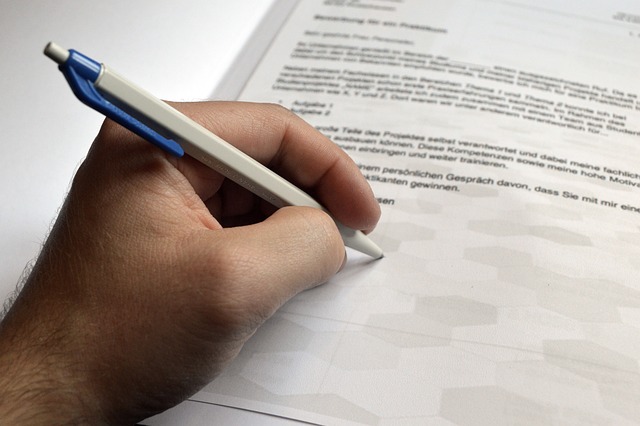Filing a patent application in the UK requires professional translation services due to the UK Intellectual Property Office's (IPO) mandate for English submissions. High-quality translations must accurately convey technical jargon and legal terminology to avoid delays, rejections, or legal issues. Engaging experienced translators specializing in patent documents ensures compliance with IPO standards and enhances application success. Choosing a reputable service that prioritizes cultural sensitivity and preserves technical terminology is essential for a successful submission process.
Are your UK patent translations ready for submission? Navigating the complex landscape of UK patent law requires meticulous attention, especially when it comes to language. This article guides you through the critical aspects of preparing your patent applications for a successful submission in the UK. From understanding translation requirements to leveraging professional services and ensuring compliance, we explore key considerations to avoid common challenges. Discover best practices to make your patent application stand out and enhance your chances of approval.
- Understanding the UK Patent Translation Requirements
- The Role of Professional Translation Services
- Key Considerations for Accurate Patent Translations
- Ensuring Compliance and Legal Validity
- Common Challenges in UK Patent Applications
- Best Practices for Preparing Your Patent for Submission
Understanding the UK Patent Translation Requirements

When preparing a patent application for submission in the UK, understanding the translation requirements is paramount. The UK Intellectual Property Office (IPO) mandates that all patent applications and documents must be submitted in English. This means that if your original patent was filed in another language, a professional and precise translation service is essential. Translation services for UK patents and patent applications should not only provide accurate word-for-word translations but also ensure the technical terminology and nuances of the field are preserved.
The accuracy and quality of the translation can significantly impact the overall success of your application. Inaccurate or poorly translated documents may lead to delays, rejections, or even legal complications. Therefore, it’s crucial to engage reputable and experienced translators who specialize in patent translations. They understand the specialized terminology and can capture the intended meaning while adhering to the strict requirements of the UK IPO.
The Role of Professional Translation Services

Professional translation services play a vital role in ensuring your UK patent translations are ready for submission. With the increasing globalisation of intellectual property, accurate and culturally sensitive translations are essential to protect your inventions internationally. These services employ expert translators who possess not only fluent language skills but also a deep understanding of technical jargon and legal terminology specific to patents.
When it comes to translation services for UK patents and patent applications, professional providers offer more than just word-for-word interpretations. They tailor their services to meet the unique requirements of intellectual property documentation, ensuring that all nuances and complexities are accurately conveyed in the target language(s). This level of expertise is crucial for avoiding misunderstandings, legal complications, or rejections during the patent examination process.
Key Considerations for Accurate Patent Translations

When preparing your UK patent applications for submission, accurate translations are paramount to ensuring your ideas are clearly communicated and protected. The nuances and technical jargon specific to patents require a high level of precision in translation services for UK Patents and Patent Applications. Look for providers with experienced linguists who specialize in intellectual property documentation to capture the exact meaning and intent behind each word.
Furthermore, consider the potential impact on your patent’s strength and validity. Inaccurate translations can lead to misinterpretations, causing delays or even rejection of your application. Choose a reputable translation service that not only delivers accurate words but also ensures cultural sensitivity and preservation of technical terminology for a seamless submission process.
Ensuring Compliance and Legal Validity

When it comes to UK patent translations, ensuring compliance with legal requirements is paramount. Accurate and professional translation services are essential for converting your patent application or description into English, as this document forms the legal basis for your intellectual property protection. Any errors or ambiguities in the translation could compromise the validity of your patent, leading to legal issues down the line.
Therefore, it’s crucial to engage reputable translation service providers specializing in patent documentation. These experts have a deep understanding of both the technical jargon and legal nuances involved in patent law, ensuring that your translated documents accurately reflect the original intent and meaning. They employ rigorous quality control measures to guarantee precision and consistency, thereby protecting your interests and facilitating a smooth submission process for your UK patent applications.
Common Challenges in UK Patent Applications

The process of filing a patent application in the UK can be complex, particularly when it comes to documentation. One of the critical yet often overlooked aspects is ensuring the accuracy and quality of translations. Patent applications require precise communication of technical details, and even minor errors in translation could have significant implications for the overall case.
Common challenges include maintaining terminological consistency across documents, especially with specialized patent jargon. Inaccurate or inconsistent translations can lead to misunderstandings and potential rejections by the UK Intellectual Property Office (UKIPO). Additionally, cultural nuances play a vital role; what seems straightforward in one language might not translate seamlessly into another, requiring professional translators with expertise in both scientific fields and linguistic precision to avoid pitfalls like literal translations that sound awkward or lose critical meaning. Therefore, relying on reputable translation services for UK patents is essential to mitigate these challenges and increase the chances of a successful application.
Best Practices for Preparing Your Patent for Submission

When preparing your patent for submission in the UK, it’s crucial to follow best practices that ensure accuracy and compliance with local regulations. One of the most critical aspects is thorough and professional translation. Opting for specialized translation services for UK Patents and Patent Applications is essential to guarantee precise communication of your invention’s details, including technical terms and complex descriptions.
Additionally, ensure your patent documents are formatted according to the UK Intellectual Property Office (UKIPO) guidelines. This includes proper labeling, clear drawings, and concise written content. Verifying the translation quality and accuracy against these official requirements is vital to avoid delays or rejections during the submission process.
When preparing your patent application for submission in the UK, ensuring accurate and compliant translations is a critical step. By leveraging professional translation services that specialize in patent documentation, you can navigate the complex requirements and address common challenges. Remember to consider key factors like terminology consistency, technical precision, and cultural adaptation to maintain legal validity. With the right approach, you’ll be well-prepared to present your invention effectively within the UK patent system, maximising its potential impact. Translation services for UK patents and patent applications play a vital role in this process, ensuring your ideas are communicated clearly and persuasively.
